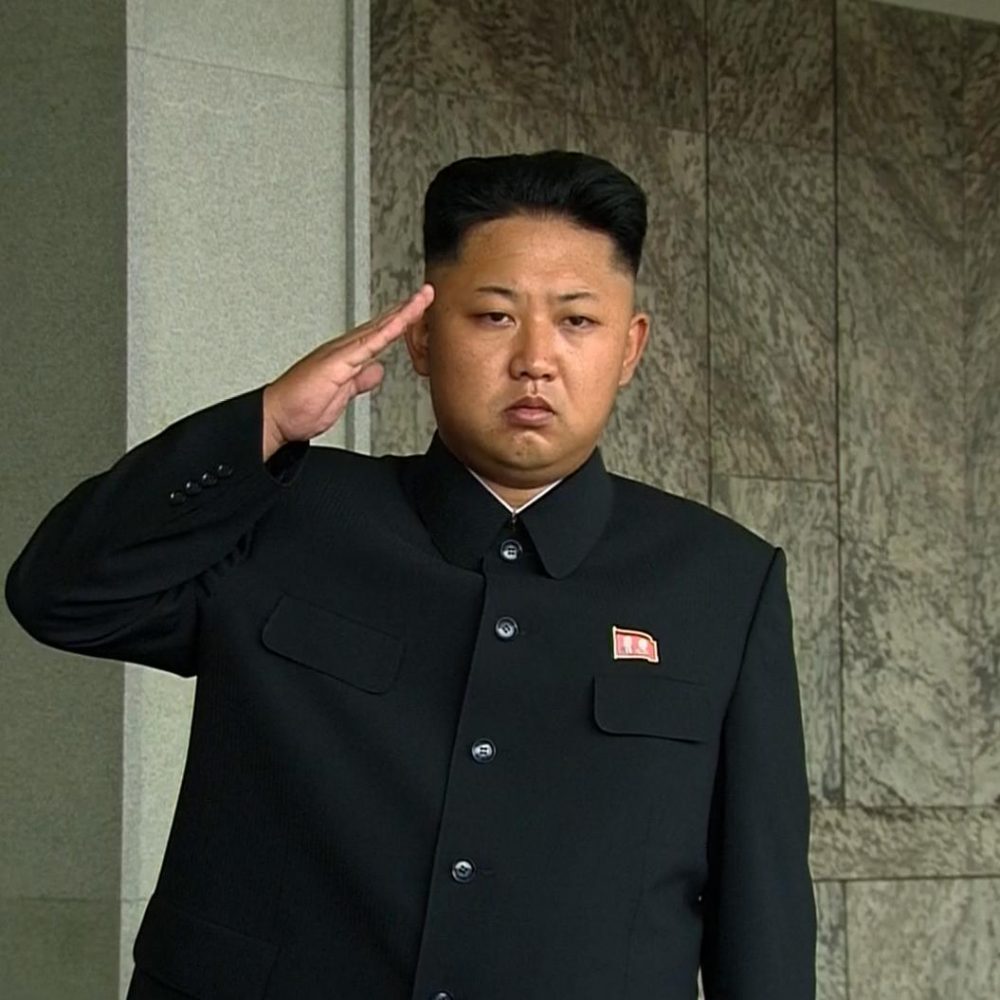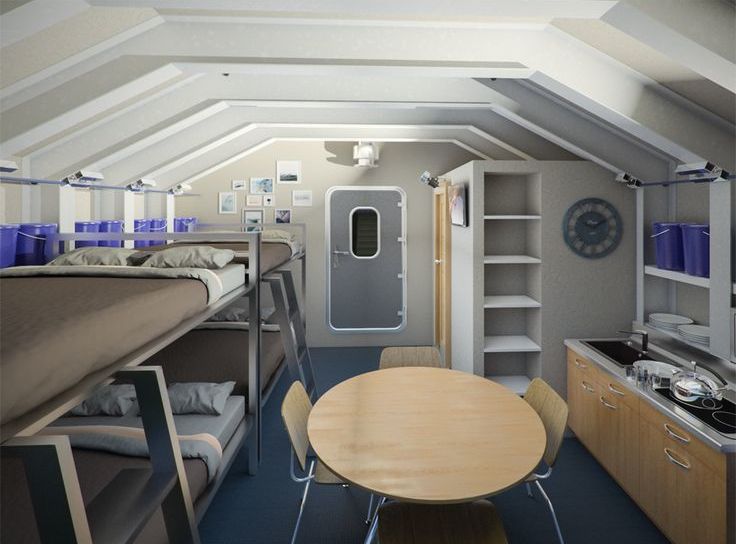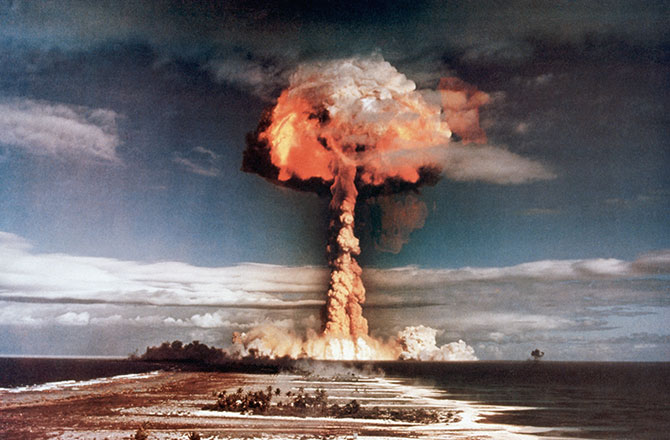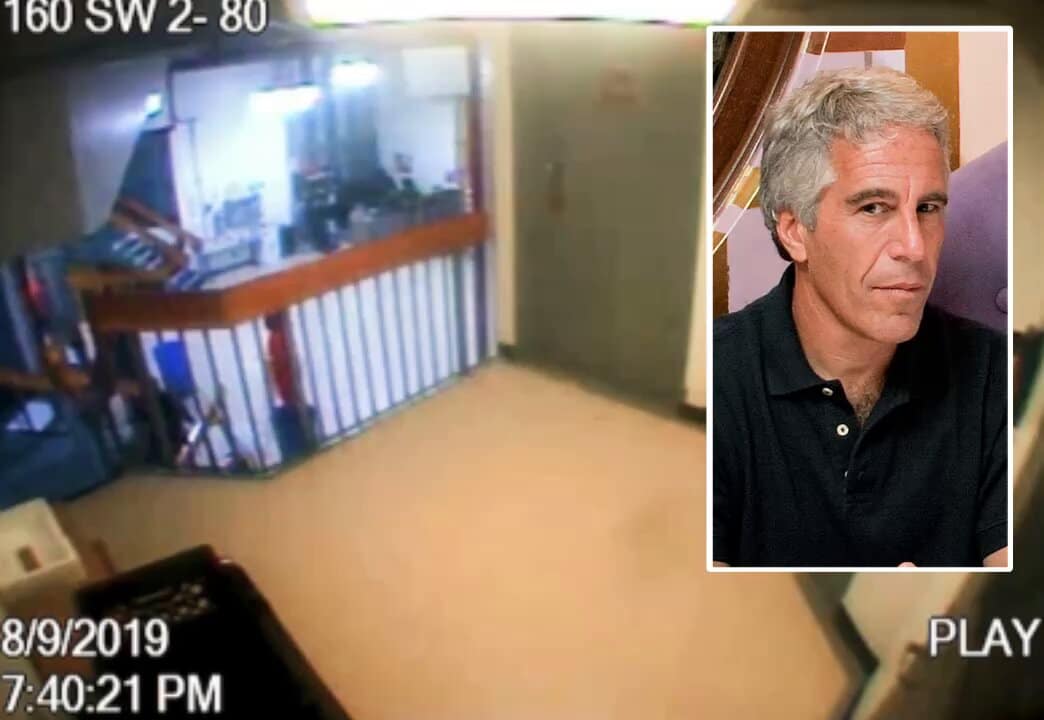I don’t know about you, but I was half expecting to wake up to World War Three this morning.
Featured Image VIA
OK, so I might’ve been exaggerating a tad, but in reality the tension between North Korea and the US has reached terrifying new heights after Donald Trump used his most aggressive language yet to North Korea, vowing to unleash “fire and fury” if North Korea continued to threaten the country.
Trump: North Korea "best not make any more threats" to the US or they will be met "with fire and fury like the world has never seen." pic.twitter.com/RTaEwFMxHq
— BuzzFeed News (@BuzzFeedNews) August 8, 2017
Yep, because that’s what the world needs – an unstable, angry leader who is easily pushed over the edge battling with another unstable, angry leader who is easily pushed over the edge. Throw in some nuclear weapons and you can see why I assumed the worst.
And if that weren’t bad enough, Kim John-un decided to flex his military muscles in reaction to Trump by threatening to launch preemptive military strikes against the US, including targeting the US Pacific island territory of Guam. I’m not sure if any of you have noticed, but fighting fire with fire really doesn’t seem to work.

Image VIA
Anyway, I decided to prepare for the worst by having a look at the US government’s recommendations for “surviving” a nuclear blast. In short, if a nuclear strike hits, the country is buggered. Anyway, it’s always good to be prepared regardless, so let’s start with the government website’s factors for protecting yourself against radiation and fallout:
Distance – the more distance between you and the fallout particles, the better. An underground area such as a home or office building basement offers more protection than the first floor of a building.
Shielding – the heavier and denser the materials – thick walls, concrete, bricks, books and earth – between you and the fallout particles, the better.
Time – fallout radiation loses its intensity fairly rapidly. In time, you will be able to leave the fallout shelter. Radioactive fallout poses the greatest threat to people during the first two weeks, by which time it has declined to about 1 percent of its initial radiation level.
So basically if a nuclear attack hits make sure you are far away or protected. I mean, when a bomb hits you don’t have much time to get far away, so let’s look at the shelter possibilities, which are apparently “absolutely necessary” according to the site:

Image VIA
Blast shelters are specifically constructed to offer some protection against blast pressure, initial radiation, heat and fire. But even a blast shelter cannot withstand a direct hit from a nuclear explosion.
Fallout shelters do not need to be specially constructed for protecting against fallout. They can be any protected space, provided that the walls and roof are thick and dense enough to absorb the radiation given off by fallout particles.
OK, so, if you want to survive this thing make sure you’ve built yourself a shelter. That’s not expensive or time consuming at all. Time to get started on those outdoor nuclear bunkers guys. And to be extra prepared, the government recommends that before the attack you must:
Build an Emergency Supply Kit.
Make a Family Emergency Plan.
Find out from officials if any public buildings in your community have been designated as fallout shelters.
If your community has no designated fallout shelters, make a list of potential shelters near your home, workplace and school, such as basements, subways, tunnels, or the windowless center area of middle floors in a high-rise building.
During periods of heightened threat increase your disaster supplies to be adequate for up to two weeks.
So now you’re fully prepared, you’ve got your shelter, supplies and emergency kit ready. Now, here’s what you should do during a nuclear blast. In short, listen for official information, get underground if possible and if you can’t get underground then go inside and don’t leave the house for at least 24 hours or until the authorities tell you too. Oh and don’t worry, because although “radiation levels are extremely dangerous after a nuclear detonation, the levels reduce rapidly.” Oh well that’s good to know. A little radiation never hurt anyone.

Image VIA
Oh yeah, and if you are caught outside and can’t get inside – don’t look at the fireball because it can blind you, lie flat on the ground and, “remove your clothing to keep radioactive material from spreading.” So yeah, get naked, close your eyes and lie on the ground and you’ll be fine. Here are a couple of other useful tidbits:
If practical, place your contaminated clothing in a plastic bag and seal or tie the bag. Place the bag as far away as possible from humans and animals so that the radiation it gives off does not affect others.
When possible, take a shower with lots of soap and water to help remove radioactive contamination. Do not scrub or scratch the skin.
Wash your hair with shampoo or soap and water. Do not use conditioner in your hair because it will bind radioactive material to your hair, keeping it from rinsing out easily.
Follow these steps everyone and you should be right as rain. We’ve all seen ‘Threads’ and ‘When the Wind Blows’ right? Nuclear blasts are no biggie and if you take cover in your home then you definitely won’t suffer severe illness from radiation poisoning. I don’t know why I was freaking out so much last night – the government’s got you covered.
Seriously though, let’s hope that the tension between North Korea and the US doesn’t come to head because in reality, as proven in previous nuclear detonations, many people die and suffer because of a radioactive attack. For a reality check (maybe we should send this to the US government), here’s what would really happen if every nuclear bomb in the world was launched.















